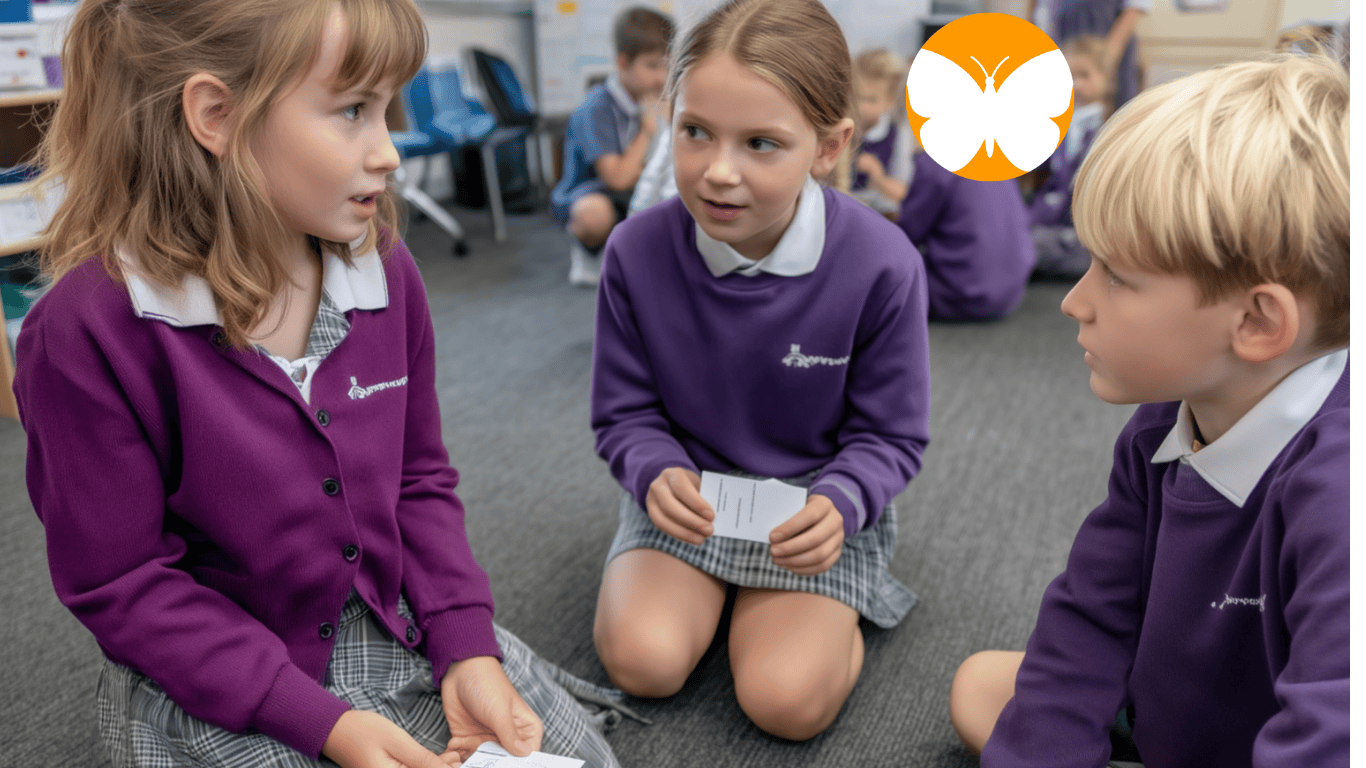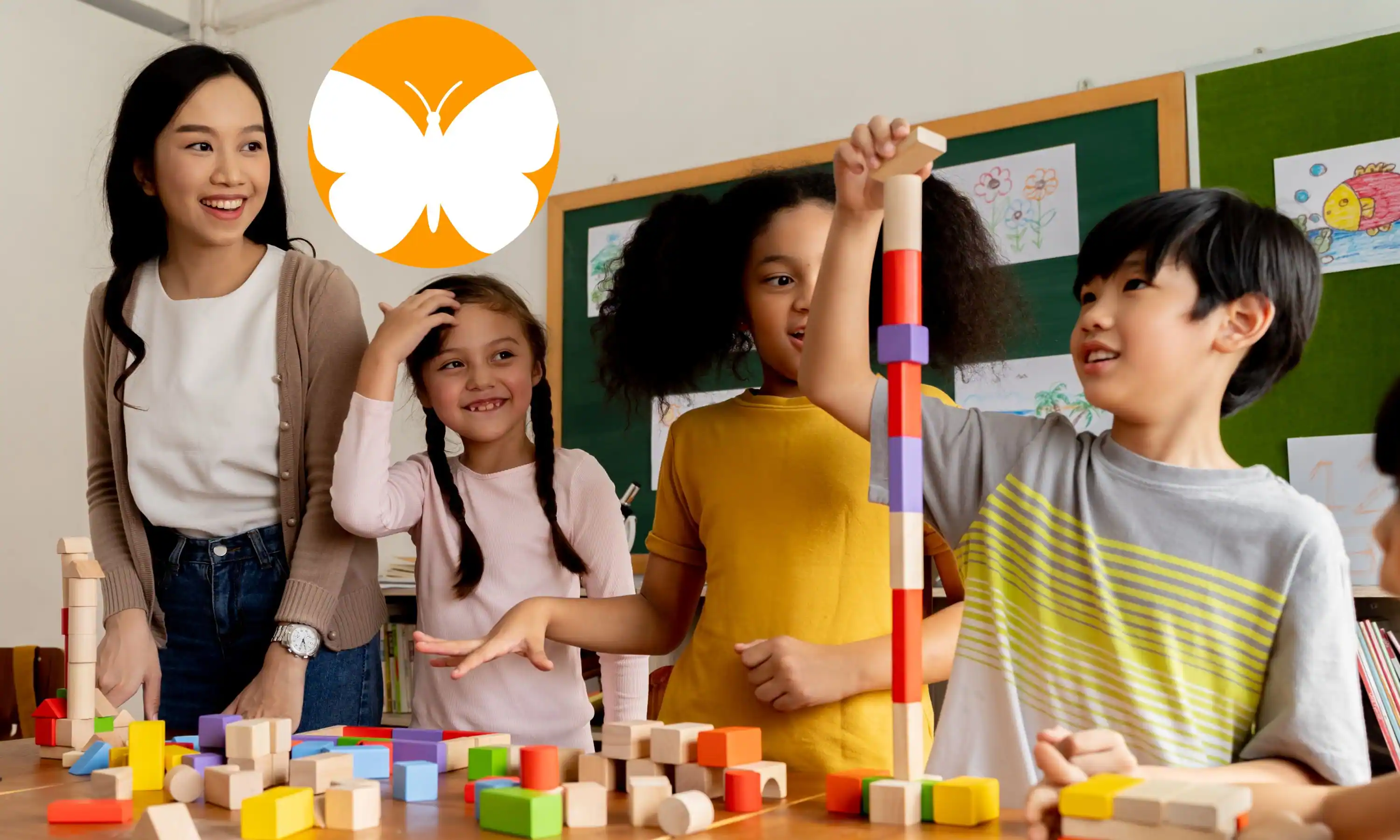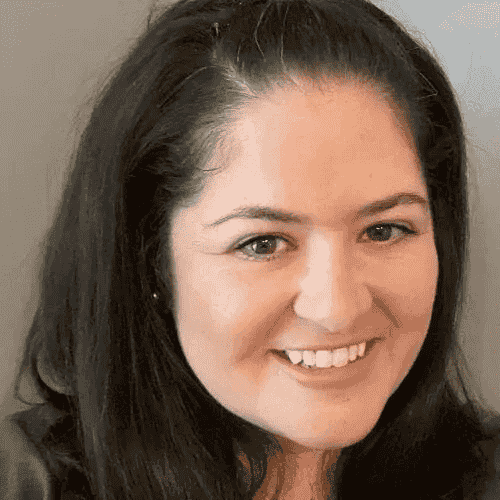Nurture Empathy and
Relationship Skills
Help your child build meaningful relationships with empathy and teamwork.
Compassionate Collaborator
Designed with educators, backed by psychology, and
easy to integrate into your school’s
routine.

Plan Objectives
 Strengthen Connections
Strengthen Connections
Teach children to maintain meaningful relationships through empathy and collaboration.
 Develop Conflict Resolution
Develop Conflict Resolution
Equip children with skills to navigate disagreements constructively and achieve win-win solutions.
 Foster Emotional Awareness
Foster Emotional Awareness
Help children recognize and respond to the feelings of others with empathy and understanding.
 Enhance Collaboration
Enhance Collaboration
Build social skills that enable children to work effectively with peers in a variety of settings.
Why This Plan?
This plan addresses the following challenges by developing targeted skills

Considers all feedback to be negative

Can not compromise with friends or siblings

Seems oblivious to other lifestyles and beliefs

Does not recognize other people’s feelings
Considers all feedback to be negative
How This Plan Helps
This plan provides tools to resolve conflicts, rebuild trust, and foster compassion, thereby empowering children to maintain meaningful relationships.
Skill: Teamwork & Collaboration
Course: Understanding Why Teamwork Matters
Can not compromise with friends or siblings
How This Plan Helps
This plan teaches negotiation and compromise techniques to promote harmony and resolve disagreements constructively.
Skill: Conflict Resolution
Course: Conflict Resolution Foundations
Seems oblivious to other lifestyles and beliefs
How This Plan Helps
This plan builds awareness of and respect for diverse perspectives through group discussions and collaborative activities.
Skill: Social Awareness
Course: Human Dynamics
Does not recognize other people’s feelings
How This Plan Helps
This plan enhances understanding of emotions through role-playing activities and reflective exercises, thus helping children recognize and respond to the feelings of others.
Skill: Empathy
Course: Cultivating Empathy
01Rebuilding Friendships
This scenario teaches your child to use communication tools to rebuild trust and maintain meaningful relationships.
02Resolving Sibling Disputes
This scenario provides your child with negotiation techniques to help them compromise and create win-win solutions.
03Understanding Emotions
This scenario helps your child recognize non-verbal cues and respond thoughtfully to others’ feelings.
04Appreciating Diverse Perspectives
This scenario guides your child to engage respectfully and appreciate diverse perspectives in social situations.
Real-Life Applications
How this plan's skills apply to real-world scenarios for everyday success
Courses Included


Cultivating Empathy
Social
Empathy
Course Details:
Modules: 4 |
Lessons: 33
Empathy Development: Develop empathy by understanding and responding to others' emotions and views.
Communication Skills: Enhance skills with active and empathetic listening techniques.


Human Dynamics
Social
Social Awareness
Course Details:
Modules: 4 |
Lessons: 32
Empathy Development: Grow empathy by valuing diverse perspectives and experiences.
Bias Challenges: Work against biases and stereotypes to improve fairness and equality.


Understanding Why Teamwork Matters
Social
Teamwork & Collaboration
Course Details:
Modules: 4 |
Lessons: 31
Teamwork Skills: Develop teamwork and collaboration skills to solve problems and build relationships.
Trust and Communication: Learn how communication, trust, and active listening enhance respectful interactions.


Conflict Resolution Foundations
Social
Conflict Resolution
Course Details:
Modules: 4 |
Lessons: 32
Strategies: Develop approaches to handle conflict constructively through communication and empathy.
Emotions: Manage emotions in conflict using mindfulness and positive self-talk.
Meet the Course Creators

Mandy Mahr
Making Responsible Choices
Mandy Mahr
Making Responsible Choices
Mandy Mahr is a Masters Level educator who served in public schools in the United States for 15 years before becoming an online tutor to schools with at-risk students, providing social emotional support as well as skill recovery in reading and writing. She is also a consultant for content creation to provide guidance to organizations wanting to engage and employ GenZ. With the technological advances the world has seen in just the last twenty years, it is her goal to train learners to be ready for jobs that don't exist yet. She is passionate about helping learners develop social emotional skills before reaching the workforce.

Melissa Miletic
Human Dynamics
Melissa Miletic
Human Dynamics
Melissa Miletic is a dynamic educator with over ten years of experience in education, beginning her journey with a transformative volunteer stint abroad at 18. She has since navigated all facets of education, from policy-making to classroom teaching, driven by her multicultural upbringing and a deep belief in the value of diversity. Committed to providing holistic, inclusive, and high-quality education, Melissa strives to impact learners across all demographics and geographies. Her approach blends modern methodologies with a global perspective, aiming to make learning engaging, relevant, and accessible to everyone. Holding a double bachelor’s degree in International Relations and Communication from the University of South Florida and a master’s in International Education from New York University, Melissa’s expertise lies in crafting educational experiences that resonate universally. Her professional and personal mission is to champion education as a transformative force, bridging cultural divides and fostering understanding in a connected world

Jessica Maddry
Understanding Why Teamwork Matters
Jessica Maddry
Understanding Why Teamwork Matters
Jessica Maddry is a passionate and resourceful educator! She has been on an amazing journey across the globe, diving deep into education for over 15 years. Her mission? Creating inclusive, exciting learning spaces where every student feels at home. She loves shaking things up and making learning an adventure! She has gained extensive experience creating digitized courses and putting together team-building events. As a certified educator in core subjects and second language learners, she mentored teachers and helped thousands of diverse learners bloom. With a Master's in Education and Learning Technology, she's all about crafting engaging lessons and using cool new ideas to keep learning fun. It’s all about making education awesome!

Dr. Kymberli Barker
Conflict Resolution Foundations
Dr. Kymberli Barker
Conflict Resolution Foundations
Dr. Barker is the mother of two fantastic young men, and they are her priority in life. She holds degrees in biochemistry, math, forensics, and psychology. She is a consultant and a professor at multiple colleges, including the Citadel, and Johns Hopkins Center for Talented Youth. She spent fifteen years in public education, prior. Her personal focus is child advocacy and she developed the Guardian ad Litem/(GAL)/CASA program for the Eastern Band of Cherokee Indians. She is tribally and state sworn as a GAL. Her favorite thing is being a mom.

Ali Dareneau
Conflict Resolution Foundations
Ali Dareneau
Conflict Resolution Foundations
Ms. Dareneau is an English teacher with dual degrees in Psychology and English Education, she enjoys helping students reach their potential, especially when it comes to English Language Arts. With over 16 years of classroom experience and working with education-based companies, she brings creativity and enthusiasm to the classroom and beyond. She earned a Bachelor's degree in Psychology in 2007 and completed her Masters's degree in English Education in 2013 which have both shaped her into the passionate educator she is today. Her professional experience as an English teacher, curriculum designer, and writer demonstrates her passion for reading and writing and solidifies her belief all students can strengthen their reading and writing skills no matter what level they begin their journey.
Sample Lesson Preview 
Cultivating Empathy
Learning Sympathy
Learning to Show Sympathy
James is a kind kid, but sometimes he doesn't show sympathy, probably because he doesn't know what it means yet! In this section James will interact with his brother, Miles, his parents, and his friend Corrie to learn what it means to be sympathetic towards others.
Learning to show sympathy in your relationships can help build trust and strengthen your connection.
If you are like James and you aren’t sure what sympathy is, this scene will help you!
Sample Lesson Preview 
Human Dynamics
Importance of Social and Cultural Awareness
Why it Matters
Social and cultural awareness are important. Here’s why:
- Making Friends And Feeling Happy: When we learn about and respect how others live, it's like friendship magic! Kindness and respect help us make more friends and have fun together.
- Peace And Teamwork: If everyone understood and respected each other's ways, there would be less fighting and more teamwork. This teamwork helps us solve big problems like protecting the planet, and that's super important for the future.
- Learning And Adventure: Learning about different cultures is like going on an exciting adventure. It makes us smarter and more creative while making the world more interesting.
- Future Jobs: Many future jobs will involve working with people from all over the world. Understanding their cultures and ways of doing things can help you succeed. Always remember to be curious and respectful about the amazing uniqueness in our world!
Sample Lesson Preview 
Understanding Why Teamwork Matters
Teamwork in Daily Life
Teamwork Has Purpose
Please imagine you have been given a very exciting group to work with on an assignment but you are all going to have to agree on a single product. Many times when groups, clubs or organizations are formed, they need to establish a “Mission Statement.”
This statement clearly defines why they have decided to work together and how it will benefit others. It is one of the many ways we can see teamwork around us in the real world. So, please remember the next time you are sitting in a waiting room or visiting a website, you will likely see this common practice at work.
Sample Lesson Preview 
Conflict Resolution Foundations
Causes of Conflict
Emotional Hot Buttons
It can be challenging dealing with emotional hot buttons, but there are several ways to manage them effectively.
First, identify your hot buttons by being aware of situations that make you upset or angry.
Second, calm your emotions with deep breathing or counting to ten when you feel highly emotional.
Third, talk about your feelings with a trusted friend, teacher, or parent; sharing your emotions can help you feel understood and less alone. Try to always speak from your own perspective. Do this by using “I” statements, like “I feel upset when…” to express how you feel.
Fourth, stay active through sports or hobbies to release built-up stress.
Fifth, keep a journal to write about your feelings, which can help you understand and manage them better.
These strategies can help you handle emotional hot buttons in a healthy way and improve your overall well-being.
